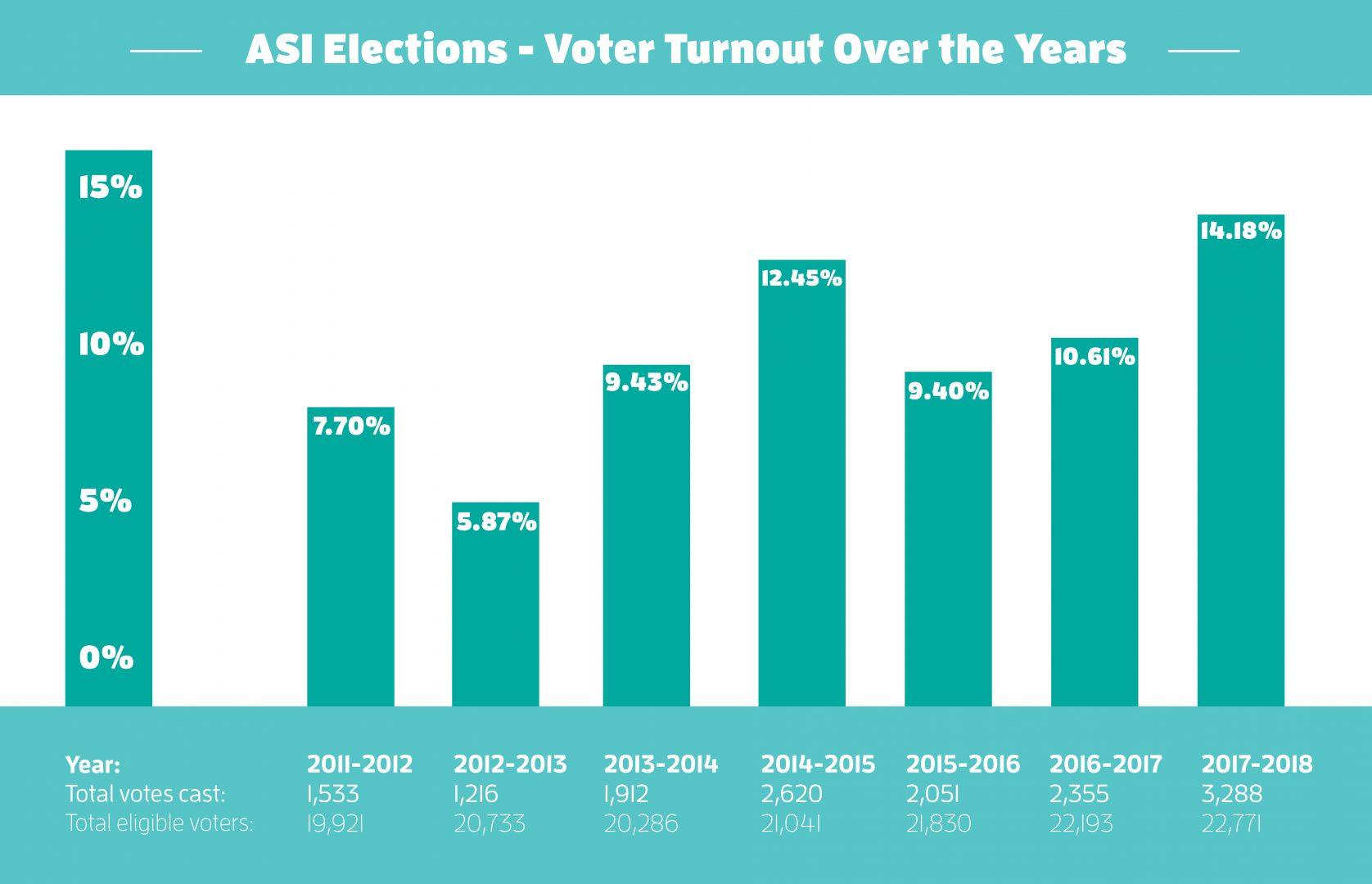The time for Fresno State students to cast their ballots for the 2018 Associated Students, Inc. (ASI) elections is rapidly approaching.
Voting will take place March 20-22. With 43 candidates to choose from and the New USU referendum also on the ballot, students will have a chance to voice their opinion about future ASI leaders and campus developments that could have lasting effects.
Despite decades of national get-out-the-vote efforts, often targeted to new and young voters on college campuses, the importance of voting has become increasingly more uncertain in recent years.
Elections big and small have been plagued with low voter turnouts.
ASI elections are no exception. Over the years, the number of Fresno State students who have cast a vote for student government has fluctuated.
Just about 14 percent of eligible voters casted ballots last year, compared to a 10 percent voter turnout for the 2016-2017 ASI elections and a 9 percent turnout in 2015-2016.
One factor to increased participation is most likely due to the controversial Bold New U referendum which was included on last year’s ballot. Although the increased participation of last year’s student body looks like a sign of progress, 14 percent of the campus population only equates to 3,228 students out of nearly 23,000 eligible voters.
The low voter turnout on college campuses mirrors a trend in the U.S. political system as a whole, with only 55.7 percent of the U.S. voting-age population participating in the 2016 presidential election, according to a study from the Pew Research Center.
The center found that the most common reason for not voting in the 2016 presidential elections was not liking candidates or campaign issues. And Fresno State students may be choosing not to vote in campus elections for the same reasons.
In fact, 24 percent of college-age registered voters claimed this as the reason they did not vote. Fresno State student Cedric Hood expressed similar views about the ASI elections.
Hood, a junior majoring in broadcast journalism, said he only voted last spring because he knew someone who was running for an ASI senate position, but he has decided he won’t be voting this year.
“I haven’t gotten a chance to hear what the candidates have to say,” Hood said. “I wish there was a way to have a more one-on-one connection with them. How else are you supposed to get to know someone?”
The second most common reason for low voter turnout during the 2016 presidential elections was voter apathy. The Pew Research Center found that 25 percent of the non-voters said they chose not to vote because they were “not interested, or felt their vote wouldn’t make a difference.”
The process of voting in the U.S. presidential elections, particularly with the Electoral College, has often fueled apathy in some voters and led them to question the true value of their vote.
But for those seeking meaning in the voting process, the ASI elections offer a straightforward and foolproof way to make your vote count. ASI elections only require a popular vote, which means that a single vote can have a huge impact.
ASI President Blake Zante was elected after receiving only 150 votes more than Cecilia Ruesta during the 2017 ASI elections.
If 630 more students, a fraction of the 19,772 students who did not vote, had voted “yes” for the Bold New U, the referendum would have passed.
Not only does voting have a direct impact on the outcome of the elections, but the ASI candidates who move on to fill senate roles and executive positions have a tremendous influence on the campus, as a whole.
ASI functions as the direct representation of students on campus. Elected by the students, ASI representatives have the power to create a budget using student fees, implement projects across campus, provide funds for clubs and organizations, create grants, advocate for vital resources and fight for students’ rights through communication with administrators and lawmakers, ASI officials note.
“They are the city council of the college,” Hood said, “They are the students’ voice.”
If the state of the country’s political climate has left college students feeling like their voice has been taken from them, then the ASI elections are where students have the opportunity to reclaim it.
The Collegian will host an ASI presidential debate on March 16 in the University Student Union Pavillion at 1 p.m.





